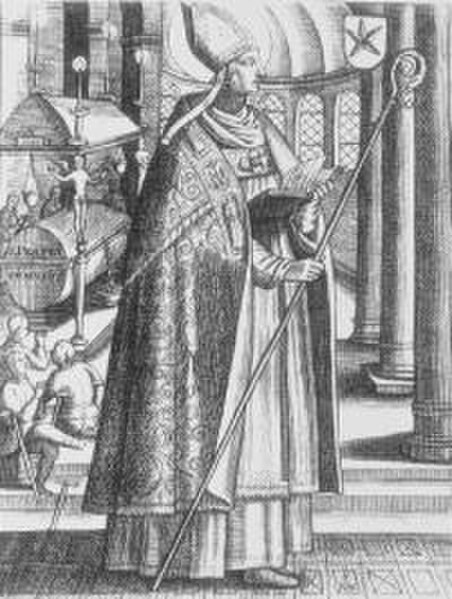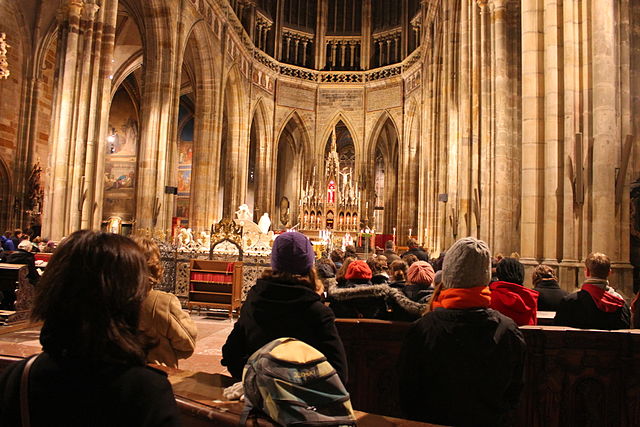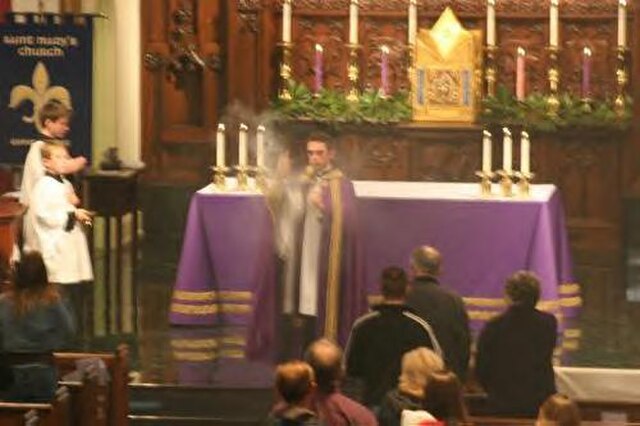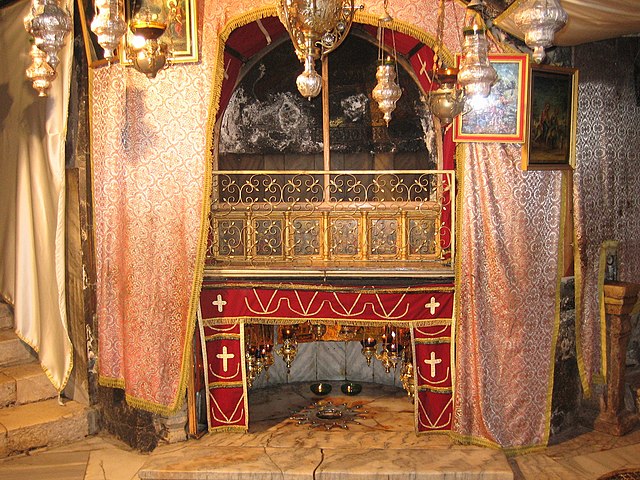Advent is a season observed in most Christian denominations as a time of expectant waiting and preparation for both the celebration of the Nativity of Christ at Christmas and the return of Christ at the Second Coming. Advent is the beginning of the liturgical year in Western Christianity. The name was adopted from Latin adventus "coming; arrival", translating Greek parousia from the New Testament, originally referring to the Second Coming.
Lighting the candles of an Advent wreath in a church service
A representation of Saint Perpetuus
Rorate Mass in Prague Cathedral, Czech Republic
Celebration of a Advent vespers. Cope and antependium are violet, the liturgical colour of Advent in the Roman Rite.
The nativity of Jesus, nativity of Christ, birth of Jesus or birth of Christ is documented in the biblical gospels of Luke and Matthew. The two accounts agree that Jesus was born in Bethlehem, Judaea, that his mother, Mary, was engaged to a man named Joseph, who was descended from King David and was not his biological father, and that his birth was caused by divine intervention. Some scholars do not see the two canonical gospel nativity stories as historically factual since they present clashing accounts and irreconcilable genealogies. The secular history of the time does not synchronize with the narratives of the birth and early childhood of Jesus in the two gospels. Some view the question of historicity as secondary, given that gospels were primarily written as theological documents rather than chronological timelines.
Adoration of the Shepherds by Dutch painter Matthias Stomer, 1632
A page from the 11th-century Bamberg Apocalypse showing Matthew 1:21
Angel Gabriel's Annunciation to Mary, by Murillo, c. 1660
Altar in the Church of the Nativity, Bethlehem








